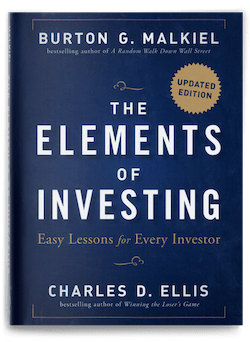Foreword
Security selection decisions further reduce returns. Ellis and Malkiel cite depressing statistics regarding the failure of the majority of mutual fund managers to exceed the returns of low-cost, passive, market-matching index strategies. The documented dismal numbers only begin to capture the enormity of the situation. Ellis and Malkiel cite numbers only for funds that survived, a relatively successful subset of the mutual fund universe. The failures, which as a group produced miserable returns, are nowhere to be measured. Many funds disappeared. The Center for Research in Security Prices collects data on all mutual funds, dead or alive. As of December 2008, the Center tracked 39,000 funds, only 26,000 of which are active. The 13,000 failed funds do not show up in the authors’ studies of past returns because the failed funds do not have current track records. (They disappeared, after all.) Considering the experience of mutual funds, dead and alive, reinforces Ellis and Malkiel’s advice to take the low-cost, passive approach.
Of course, even in a slim volume, quibbles arise. I view home ownership more as a consumption good and less as an investment asset. I cast a skeptical eye on Ellis and Malkiel’s implicit endorsement of stock picking in their confessions regarding personal success in security selection. (Is it surprising that two of the greatest figures in modern finance would figure out how to beat the market? Yes, they can pick stocks – the rest of us cannot.) I more emphatically recommend Vanguard, which, along with TIAA-CREF, operates on a not-for-profit basis and thereby eliminates the money management industry’s pervasive conflict between profit motive and fiduciary responsibility. Quibbles aside, The Elements of Investing delivers an important and fundamentally valuable message.
When I was a doctoral student at Yale in the late 1970s, my dissertation advisor, Nobel laureate James Tobin, suggested that I read A Random Walk Down Wall Street to learn about how markets really work. Burt Malkiel’s wonderful book provided a critical foundation for my academic work. When I returned to Yale in the mid-1980s to manage Yale’s endowment, I came across Investment Policy, the predecessor to Winning the Loser’s Game. Charley Ellis’s marvelous volume informed my approach to investment management in countless ways. Now, Charley Ellis and Burt Malkiel have produced a magnificent primer on investing for all of us. Follow their recommendations and prosper!
David F. Swensen
Author of Unconventional Success:
A Fundamental Approach to Personal Investment
Chief Investment Officer, Yale University
July 2009



 Previous Page
Previous Page